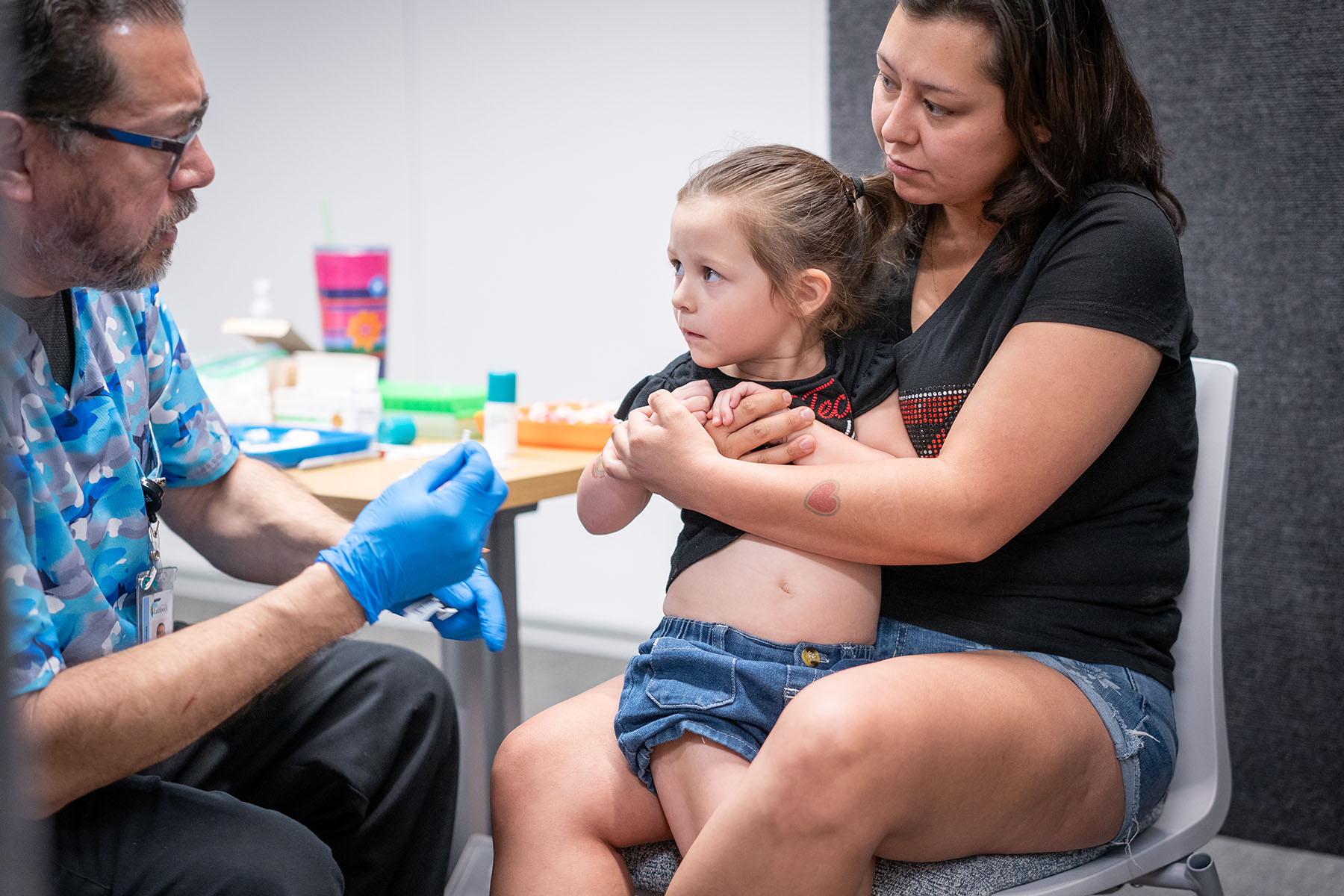Most Americans support routine childhood vaccine requirements even as they become more politically charged, according to a new poll released Wednesday.
A survey by Harvard T.H. Chan School of Public Health and the de Beaumont Foundation found that 79 percent of Americans believe parents should be required to vaccinate their children against preventable diseases to attend school. That includes 72 percent of all parents.
The support cuts across political party lines, with backing from 90 percent of Democrats, 68 percent of Republicans and 66 percent who say they agree with “Make America Great Again,” the political ideology movement aligned with President Donald Trump.
“This just shows that routine vaccination policy is not as controversial as you would believe if you were just reading news and watching influencers,” said survey lead Gillian SteelFisher, director of the Harvard Opinion Research Program and principal research scientist at Harvard Chan School. “This is pretty well agreed ground.”
The poll was conducted online and via telephone between March 10 and March 31, as measles cases soared around the country. The poll had a sample of 2,509 adults aged 18 or older, with a margin of error of plus or minus 2.3 points. Interviews were conducted in English and Spanish.
Brian C. Castrucci, president and CEO of the de Beaumont Foundation, a private philanthropy that supports public health including vaccination, said the new polling shows that the medical community must continue to hone its messaging about the need for vaccines. An increase in vaccine hesitancy — people who delay or refuse vaccination — is among the reasons for a decline in childhood vaccination rates. That can prevent herd immunity, the indirect protection of a community from an infectious disease. Some of the most contagious diseases require more than 90 percent of a population to be immune.
“While we do show really strong support for vaccines, 79 percent is a little low compared to what we actually need to get herd immunity,” Castrucci said. “And so there’s a lot of work to be done in taking something that we know protects our country and protects our children.”
Among those who support childhood vaccine requirements, vaccine effectiveness in protecting most children (90 percent) and family responsibilities to keep schools safe (87 percent) were major reasons for their positions.
American adults also overwhelmingly, at 91 percent, believed in the safety of vaccines for most children. The poll distinguished vaccines that prevent childhood diseases such as measles, mumps and rubella from vaccines that prevent COVID-19. Sixty-three percent percent believe vaccines are very safe and 28 percent believe they are somewhat safe. Just 9 percent questioned their safety — 5 percent believe they are not very safe and 4 percent believe they are not safe at all.
About 1 in 5, or 21 percent, do not support childhood vaccine requirements, with more citing the need for parental choice rather than safety concerns as a major reason for that. Among parents surveyed, 88 percent believe vaccines are safe.
SteelFisher said the polling on parental choice can be revealing for policymakers and the medical community as they shape related health legislation and try to promote collective health choices.
“If people bring empathy to it, you can kind of tamper down some of that vitriol which we see so much and just kind of say, ‘Hey, I hear you.’ We should make space for that conversation,” she said. “To me, these kind of data are a reminder you have to know what people are thinking.”
Castrucci agreed, adding that confronting the issue of parental choice will help public health professionals “in how we actively engage with people around, ‘How do you make that choice? Why is this choice important?’ And what are the downsides for any one person not choosing to make this choice for themselves, their child and their family?”
The polling comes amid an inflection point in vaccine policy under Health and Human Services Secretary Robert F. Kennedy Jr.
Doctors have increasingly expressed public alarm over Kennedy’s actions on vaccines. In May, Kennedy bypassed an independent vaccine panel to announce contradictory guidance on COVID-19 vaccines for pregnant people and children. A few weeks later, he fired everyone on that panel — the Advisory Committee on Immunization Practices, or ACIP — and replaced them with members who have limited relevant experience.
ACIP, which is scheduled to meet Wednesday and Thursday, has long made recommendations that help determine Americans’ access to vaccines. Vaccine experts say they’ll be closely tracking the panel’s actions.
Part of Kennedy’s political ascension has included open skepticism of vaccines, with a series of claims over years that are not based in facts. Some of his more ardent supporters include parents. Castrucci said it will be important for doctors to keep challenging the emerging false narratives.
“We need folks to opt in to these vaccines that we know work and that we know are safe and effective, but just citing data is not helping our argument,” he said. “And so we have to create spaces where these conversations can happen and we can gain trust of parents so that they will opt into childhood vaccinations instead of contribute to the growing pushback that some have against them.”







